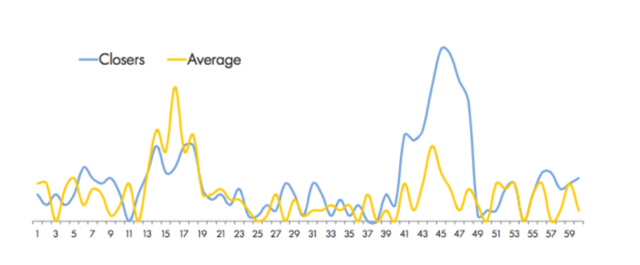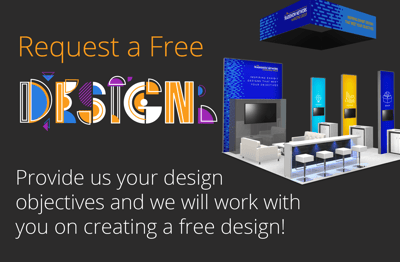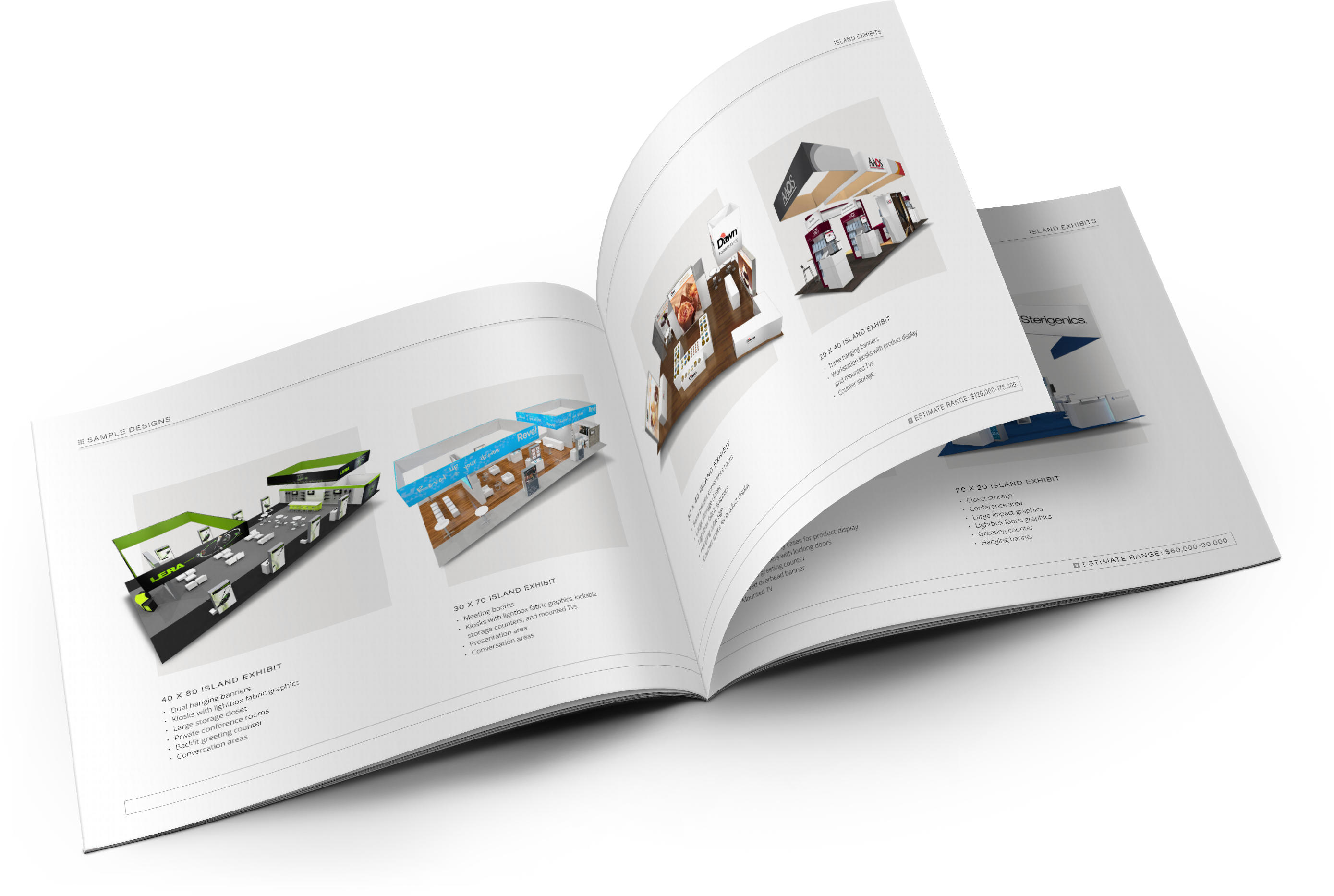Price objections are common in sales -- primarily because most prospects have learned pushing back on cost will get them a discount. That makes it difficult to respond to a pricing objection if you don’t want to immediately lower your price. While discounting has its place in the sales process, being too discount-happy will destroy your margins and lower your product’s perceived value.
How to Discuss Price
This process will help you overcome price objections:
Step One: After the prospect has finished speaking, pause for three to five seconds.
(Hit the “Mute” button if you need to.)
Step Two: Explore the pricing objection. According to sales trainer and consultant Colleen Francis, you can ask up to three questions before responding to the objection.
Step Three: Summarize their price objection in a few sentences.
Step Four: Circle back to your product’s value.
Here’s an example (using response #23 from this list):
Prospect: “We really like the product, but it costs too much.”
Rep: *Silence.*
Prospect: “The other options we’re exploring are 10-15% cheaper. Is there any way you can come down a bit?”
Rep: “I understand. In fact, I had two other customers just like you who were uneasy about the price at first. But what they found was … ”
When to Discuss Price
According to Gong's analysis of 25,537 sales calls, there are clear-cut "best times" to discuss your product's price -- between 13 and 20 minutes, and 40 and 49 minutes.

These findings make sense: High-performing reps bring up pricing at the beginning of the call to set their prospect's expectations, and again near the end so they can transition smoothly into the close.
While you shouldn't abruptly change the topic right when the clock hits 40 minutes, you should structure the meeting so you can hit pricing when you're around 20% and 65% of the way through.
30 Responses to Price Objections
The following responses to pricing objections allow you to acknowledge your prospect’s concern without immediately slashing your price or causing them to walk away.
1) "Too expensive compared to what?"
"Expensive" is a relative term. If you can find out what the prospect is comparing your product or service to, you can more precisely differentiate value.
2) "Really? How are you coming to the conclusion [product] is too expensive?"
This prompts the prospect to break down their reasoning. Once a salesperson better understands the specific concerns behind the sticker shock, they can more easily address them.
3) "Are there some boxes we left unchecked?"
Circle back and make sure the sales process unfolded to both parties' expectations.
4) "I hear you. The best products are often more expensive."
According to sales expert Geoffrey James, "a price objection isn't 'real' until the customer has brought it up twice." Using this response the first time you hear "it's too expensive" can help you separate the prospects who truly don't have the budget from those who are merely kicking the tires.
5) "How much will it cost you to do nothing?"
Get them to think about the bigger picture. Reveal the hidden costs in the status quo.
6) "Is it a cash flow issue, or a budget issue?"
This question gets to the heart of whether they are asking for a discount (budget) or payment terms (cash flow). Once the rep categorizes the objection, they can negotiate more effectively.
7) “Let’s explore some creative strategies for fitting this into your budget.”
If your prospect doesn’t have enough allocated funding, try to find a workaround. Suppose their department has a set budget for software and a separate one dedicated to maintenance. Instead of charging them one flat price, you might send one contract for your product and another for your service fees. Now that you’ve unbundled or unpackaged your solution, your prospect can fit it into the budget.
You can also bill the buyer in stages. Let’s say your product would max out their quarterly budget -- and they need to save money for other purchases. Charge them half now, and half next quarter.
Not only will the buyer appreciate your flexibility, but you’ll rescue the deal without compromising on price.
8) "Let's say money was no object. Would our product/service help solve your problem?"
A fast track back to value.
9) "What's too expensive?"
Asking this (gently) prompts the prospect to explain their conception of your product/service. Hearing a response along the lines of "Well, it's a lot for just X, Y, and Z" reveals their low value perception.
10) "Too expensive? That's concerning."
Concerning because this product/service is so valuable for the cost. Nudge the prospect back to value.
11) "Is price the only thing that's keeping you from signing?"
If the prospect has any other objections the salesperson needs to address, this question will surface them.
12) "Okay. So which part don't you want?"
What you're telling the buyer is that price is inextricably linked to value. So if a buyer doesn't want to pay full price, they won't be able to get the full value. This question might prompt them to reconsider.
13) "Will price keep you from getting what you really want?"
You're not calling them cheap outright, but you are raising the question in their minds. And no one likes to be cheap, especially when their business is on the line. Alternatively, this will reveal if your product or service isn't the ideal solution for their problem.
14) "Does this mean we will never have the chance to work together?"
Francis argues that the word "never" is the kicker.
"When it comes to handling sales objections, 'never' is the most powerful word in the English language," Francis writes. "Most people hate it. As a result, the vast majority of prospects will respond by saying, 'well, no … not never!'"
The salesperson can then probe into the conditions required in order to strike a deal and adapt terms or walk away accordingly.
15) "Setting price aside, do we have the product/service you want to buy?"
If they say yes, you can follow up with #12. If they say no, determine if it makes sense to go back to value or abandon the deal.
16) "What's the ROI you're looking to see?"
This steers them away from thinking in terms of "expensive" or "cheap," and towards the long-term value for their business.
17) "It might seem expensive for one day, but let's break it down by month/quarter."
A lump sum can seem scary to anyone. Have figures on how the cost distributes over years, months, or days at the ready.
17) "Is what you're saying that our prices are high in comparison to our competitors'?"
If your price is indeed higher than the competition's, this question opens the door for the salesperson to differentiate on value.
19) "Have you ever bought a similar product or service before?"
Another possibility is that the prospect has an inaccurate idea of what this type of product or service costs -- perhaps because they've never purchased it before. With this question, you can clear up their misconception.
20) “Price is an important consideration. So I have some context: How much research have you done on what a typical investment is for a product/service like this?”
According to Andrew Quinn, VP of Learning & Development at HubSpot, the question behind this one is, “Do you already know what something like this should cost?”
Thanks to your prospect’s inexperience, they might be placing your product in the wrong category.
For instance, maybe your solution has both a data storage and an analytics component. If they compare it to other data storage options, it’ll look significantly more expensive. But if they benchmark it with analytics software, your price is right in line with the competition.
21) "You think it costs too much?"
Feeding their line back to them forces the prospect to explain their position, and might make them reconsider in the process.
22) "When's the last time you bought something based on price alone?"
Again, no one likes to feel cheap.
23) "I understand. In fact, I had two other customers just like you who were uneasy about the price at first. But what they found was ... "
Empathize with the prospect, and then address their concerns with a strong case study that proves value.
24) "In your own business, is your product/service always the least expensive option available?"
If you're a B2B salesperson, this is a great line to have in your back pocket. The buyer's organization has to win deals too, and they probably do it on value and not just price. If delivered correctly, this line might elicit a chuckle -- and a signed contract.
25) "Do you really need to say 'no' to our price right now?"
Seems a little harsh, right? Not so according to Tom Reilly, the sales expert behind this approach.
"When the buyer says, 'I don’t know. The price is higher than I want to go,' try two or three ways to deal with it. If nothing works, offer this response and watch the expression on the buyer’s face," Reilly wrote in a blog post. "I guarantee they will raise their eyebrows."
If the buyer replies that they don't have to say no right now, the salesperson can then suggest the prospect take a few days to mull over the price -- and realize that by saying no the price, they're saying no to the product and its associated value.
26) "[Silence]"
Sometimes the best response is no response. When a salesperson simply falls silent after an objection, the prospect often begins to explain their rationale. The rep can then address specific concerns from there -- no prompting needed.
27) “Compared to a candy bar, it’s a significant purchase. But when we look at [weekly, monthly, yearly] ROI, you’ll actually save money.”
This light-hearted response helps you put your product in context.
28) “[Prospect’s name], I would rather apologize for the price today than for the lack of quality and your unhappiness forever. Now, let’s not let a few dollars keep us from doing business together.”
This reply comes from famous salesperson and trainer Zig Ziglar courtesy of Butch Bellah. It reminds your prospect skimping on price will hurt them in the long run.
29) "Thanks for your honesty. How much were you thinking of spending?"
The prospect's answer will reveal whether they're in the right ballpark or playing in a completely different state. This response also turns the conversation back on them, so they're forced to take a stand or admit they were bluffing.
30) "That's a little surprising to me, because when we talked [earlier, on X day] cost wasn't a concern. Has something new come up on your end I should know about?"
Use this objection-handling strategy when you've previously discussed price and it definitely wasn't an issue. Something has clearly changed -- your prospect has begun evaluating a less expensive alternative, the final decision maker has asked them to get a discount, their department just invested in a different solution and now they have less budget -- and you need to figure out what did.
Once you've gotten a handle on the blocker, you can determine whether it's surmountable or you need to walk away.
Written by Aja Frost - @ajavuu - https://blog.hubspot.com/sales/price-objection-responses






